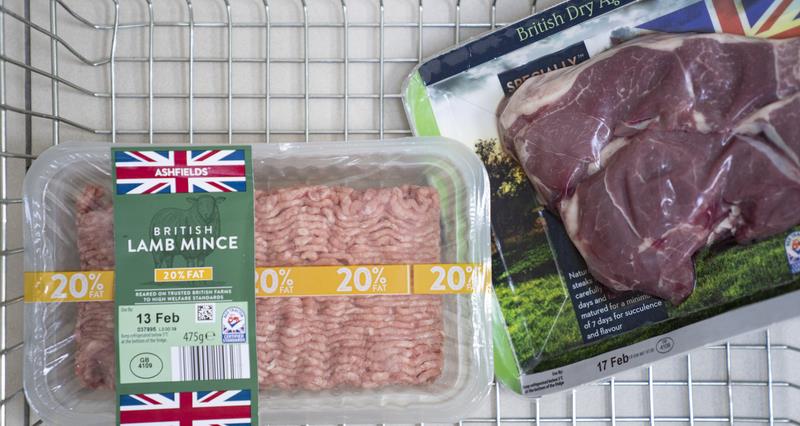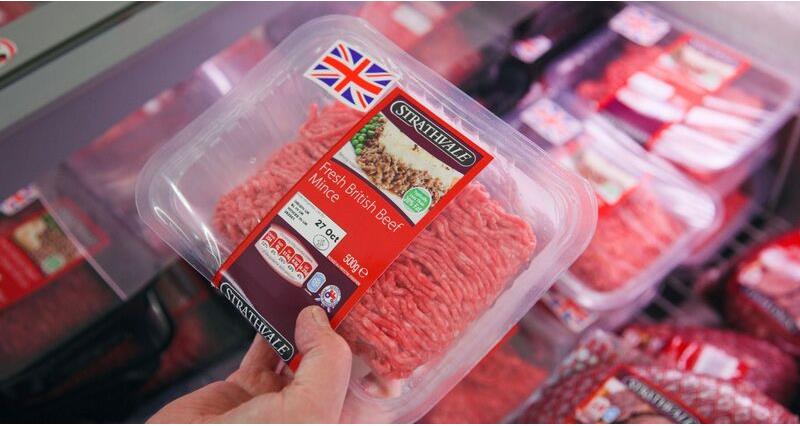The NFU has responded to the consultation calling for clear and unambiguous labelling that enables consumers to make informed purchasing decisions. Our response is summarised below:
Better transparency for country of origin products
The NFU welcome measures to improve country of origin labelling and to give shoppers more transparency on where a product has been produced.
Consumers recognise that UK farms have high animal welfare standards (78%1) and 87% support increasing self-sufficiency in UK food production2, but it is often tricky to determine what goods are produced in the UK.
Going forward, clear front of pack country of origin labelling can allow shoppers to select agri-food goods produced by British farmers.
Out of home market
The NFU is supportive of measures to improve labelling in the out of home sector as NFU research shows that consumers care about the provenance and quality of food they consume within the out of home market.
Labelling should provide consumers with the ability to make informed choices when dining and to drive transparency and accountability within these complex supply chains.
Cause for concern
The NFU believes any moves to introduce a production method or welfare labelling system would over-simplify a complex area, risk causing confusion for consumers and would carry an unreasonable burden to food and farming businesses.
The NFU does not agree with the proposals for method of production labelling set out in this consultation.
Method of production is not necessarily an indication of welfare and we do not believe production labelling is in the interests of either animal welfare, the consumer or farmers.
The role of labelling must not be overestimated. Evidence is very clear that consumer behaviour, in store, and consumer ‘interest’ is conflicted.
Research shows that consumers, when directly asked, suggest that labelling would be helpful on both animal welfare (48%) and sustainability (42%3).
However, once in store, welfare is less of a consideration for shoppers compared to other factors. Very few shoppers look at the labels in store (35%) prior to purchasing4.
Is labelling the solution?
Method of Production labelling is seen by the government as the solution to differentiating between those imported products that fall below or are different to UK standards.
With such low levels of interaction with labels in store and the plethora of other information displayed, we need to think about whether the label is really the place for complex information on method of production or welfare.
Core standards for all agri-food imports
Government should prioritise the process of enshrining a set of core environmental and animal welfare standards in law for all agri-food imports, setting a minimum threshold in domestic regulation that imports must meet to access the UK market.
This would require producers overseas to meet a comparable standard to domestic farmers.
Focus on trusted assurance schemes
Consumers need clear reassurance that animal welfare has been prioritised and is being scrutinised accordingly, and this is best delivered through independently audited assurance schemes.
Certification schemes are the most trusted label by consumers and help validate authenticity.
Assurance schemes allow standards to evolve in response to developments in animal welfare science, continuously improving welfare outcomes while simplifying consumer choice.
Focus should be given to improving awareness and understanding of the labels and logos for existing assurance schemes.
A simple set of definitions
The UK labelling system can be improved further by standardising definitions and ensuring information is clear, concise and easily understood.
If consumers wish to learn more about the welfare and sustainability of a product, further information can be provided online, and new and existing technology, like QR codes, can be used to direct shoppers on where to find out more.
Concern over costs
We are concerned that the proposals will add further inflationary costs without meaningful consumer benefit and that the consultation has been undertaken in a short time period without adequately seeking views from those businesses who stand to be impacted the most.
[1] Source: YouGov survey on public opinion towards current UK farming practices
[2] OnePoll online survey for the NFU between 30 May and 6 June 2023.
[3] AHDB, 2021. How helpful do you think each of these ideas would be in improving your knowledge and trust in the UK food system ? (very helpful)
[4] AHDB/DJS Secondary Labelling Research – Sept 2016

